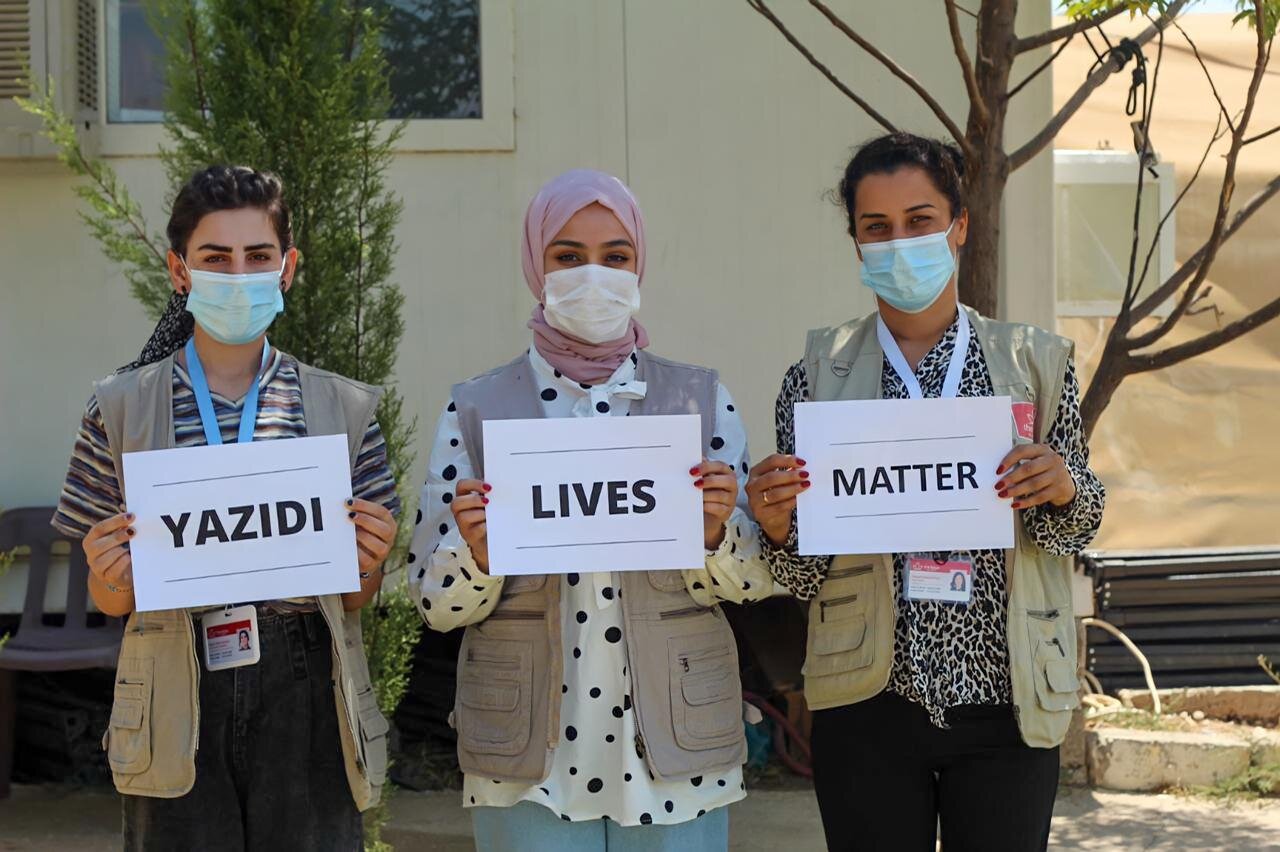Why the world must remember the forgotten Yazidis
This week, the Yazidi community will once again remember all those who died and went missing during the devastating ISIS attacks of 2014.
On August 3rd of that year, Da’esh militants stormed the Iraqi districts of Sinjar, unleashing some of the worst crimes ever witnessed by our generation. They murdered men and the elderly, kidnapped women and girls and subjected them to rape and enslavement, and recruited boys as young as seven into their deadly clutches.
Today, thousands of innocent people remain missing, and mass graves are still being discovered. Of those who fled to safety, hundreds of thousands still live in primitive camps for internally displaced people and refugees, and most are unable to return home – largely because their houses, farms and businesses were destroyed.
While there has been global recognition that these attacks were genocide, justice has in no way been served, and there is no accountability for the heartbreaking loss of life and human rights abuses that occurred seven years ago. Not only that, but Yazidis also live in fear of an ISIS resurgence, which could bring yet more violence, destruction and needless bloodshed. Basic services and resources also remain in desperately short supply, and Covid-19 has of course made matters worse, with those who were already living in poverty pushed even further to the fringes of survival.
It’s no wonder that this age-old ethnic minority feel as if they have been forgotten by the world – and that their lives hardly matter. At the Lotus Flower, we work hard every day to show that Yazidi lives do matter – as do the lives of all refugees and displaced people.
The programs we provide at our centres are designed to enable survivors to build brighter futures for themselves, through education, livelihoods projects and awareness of issues such as gender equality, human rights and mental health.
But we can’t do it alone. So much more is needed from the international community, both in terms of day-to-day support and in seeking some level of justice for victims.
As you can see from these photos, our staff are proud to stand with the Yazidis, today and every day.
We have not forgotten, and we never will.


